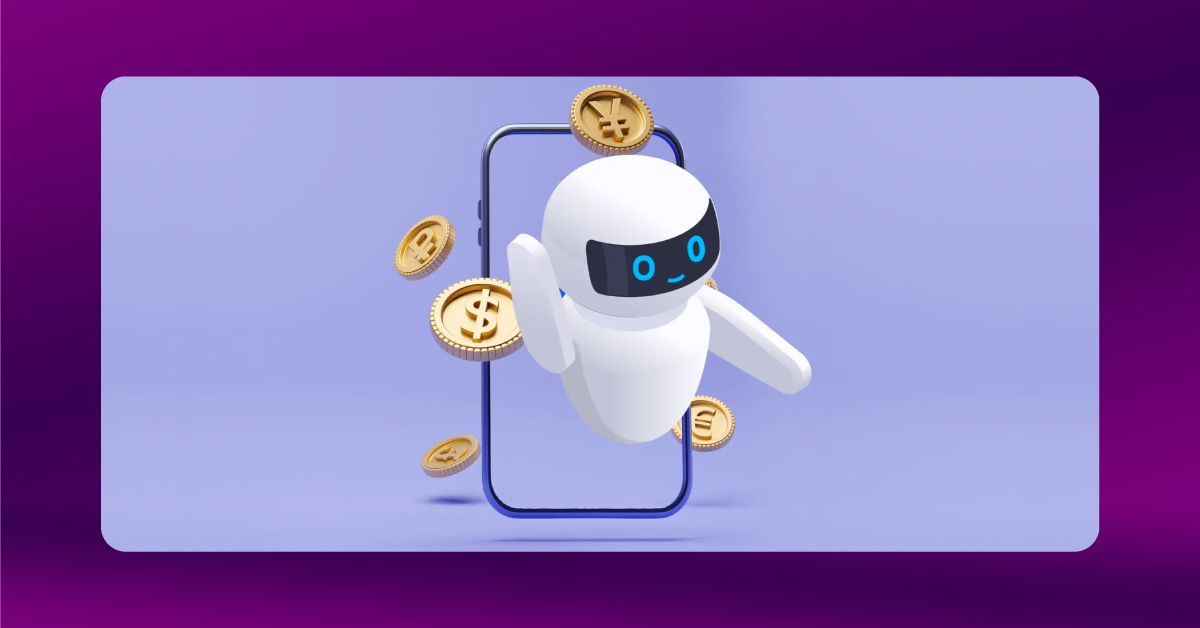The world of artificial intelligence (AI) assistants has rapidly evolved, offering a range of tools tailored to enhance productivity, creativity, and workflow management. Among the most prominent names in the field are ChatGPT, GitHub Copilot, and Gemini by Google. Each of these AI solutions excels in unique ways, catering to different user needs and preferences.
This article provides an in-depth comparison of these AI assistants, exploring their features, strengths, limitations, and ideal use cases to help you decide which one fits your workflow best.

Understanding AI Assistants: ChatGPT, Copilot, and Gemini
Before diving into the specifics, it’s essential to understand the core purposes of these AI tools and how they cater to different aspects of workflow optimization.
What Is ChatGPT?
Developed by OpenAI, ChatGPT is a conversational AI model built to assist users with a wide range of tasks, from answering questions and drafting emails to brainstorming creative ideas and writing code. ChatGPT is designed to be general-purpose, making it highly versatile for professionals, students, and businesses.
Key Features of ChatGPT:
- Natural language understanding and generation.
- Customizable responses with advanced versions like ChatGPT Plus.
- Ability to integrate with external tools (e.g., for coding or research).
- Multimodal capabilities in certain models, including text and image comprehension.
What Is GitHub Copilot?
GitHub Copilot, a product of collaboration between GitHub and OpenAI, focuses specifically on assisting developers in coding tasks. It integrates seamlessly into various integrated development environments (IDEs), offering suggestions, autocompletions, and debugging support.
Key Features of GitHub Copilot:
- Suggests entire code snippets based on context.
- Supports multiple programming languages.
- Reduces time spent on repetitive coding tasks.
- Integrates with popular IDEs like Visual Studio Code.
What Is Gemini by Google?
Gemini, Google’s cutting-edge AI assistant, aims to merge conversational AI with deep contextual understanding. As part of Google’s broader AI ecosystem, Gemini incorporates powerful large language models (LLMs) with specialized features for search, productivity, and creativity.
Key Features of Gemini:
- Deep integration with Google Workspace tools (Docs, Sheets, Gmail, etc.).
- Advanced contextual search and summarization capabilities.
- Real-time updates and dynamic interactions.
- Focus on enterprise-level applications.
Comparing the Core Strengths of Each Assistant
Each AI assistant has unique strengths, and understanding these is crucial in determining the best fit for your workflow.
ChatGPT: A Generalist Powerhouse
ChatGPT shines in its versatility, making it suitable for diverse applications. Whether you’re brainstorming ideas, automating mundane tasks, or learning new skills, ChatGPT is an all-in-one solution.
Strengths:
- User-Friendly Interface: ChatGPT is easy to use, even for non-technical users.
- Adaptability Across Domains: It can assist with tasks ranging from technical coding to casual conversations.
- Affordable Options: With free and subscription-based versions, it’s accessible to a wide range of users.
Limitations:
- May lack specialized depth compared to domain-specific tools like Copilot.
- Heavily reliant on user input for precision.
GitHub Copilot: The Developer’s Companion
GitHub Copilot is tailored for developers, focusing solely on improving coding workflows. It’s not a general-purpose assistant but excels in programming efficiency.
Strengths:
- Code-Centric Focus: Optimized for developers, Copilot understands programming syntax and context.
- Speed and Efficiency: Reduces the time spent on repetitive or boilerplate code.
- Collaborative Integration: Works seamlessly within IDEs to enhance development processes.
Limitations:
- Limited usefulness outside software development tasks.
- Requires an active GitHub subscription for full functionality.
Gemini: The Context-Aware Innovator
Gemini is positioned as an enterprise-grade AI, offering robust features for professional and collaborative workflows. Its integration with Google’s ecosystem makes it a go-to for businesses.
Strengths:
- Seamless Integration: Works well with Google Workspace apps, ideal for office environments.
- Contextual Awareness: Excels in understanding complex queries and providing actionable insights.
- Scalability: Suitable for both individuals and large teams.
Limitations:
- Features are more tailored to Google services, limiting cross-platform compatibility.
- Availability may vary based on regions and enterprise-level subscriptions.
Use Cases: Which AI Fits Different Workflows?
The suitability of these AI assistants largely depends on the nature of your work and your specific requirements. Let’s explore common workflows and determine which AI assistant is the best match.
Creative and Content Development
ChatGPT:
- Ideal for writing articles, blog posts, and marketing copy.
- Great for brainstorming creative ideas and refining drafts.
- Can help generate fictional content or scripts.
Copilot:
- Not suitable, as it is focused on code generation.
Gemini:
- Useful for structured content, especially in professional environments.
- Can summarize documents and assist with polished presentations.
Software Development and Coding
ChatGPT:
- Suitable for basic coding support and debugging.
- Best for non-specialist developers or those exploring programming.
Copilot:
- The clear winner for software developers, providing precise and context-aware code suggestions.
- Streamlines complex coding workflows.
Gemini:
- Limited in this domain but can assist in organizing code documentation or integrating with Google Workspace for project management.
Enterprise Collaboration
ChatGPT:
- Can assist with summarizing meetings, drafting emails, and brainstorming team strategies.
- Lacks deep integration with enterprise tools.
Copilot:
- Minimal relevance, as it focuses on individual developers rather than team collaboration.
Gemini:
- Designed for enterprise environments, Gemini excels in collaborative workflows, integrating with Docs, Sheets, and Gmail for seamless productivity.
Pricing and Accessibility
ChatGPT:
- Free version available with premium tiers (e.g., ChatGPT Plus for enhanced features).
- Accessible to individual users, small businesses, and large enterprises.
GitHub Copilot:
- Subscription-based, starting at $10 per user per month.
- Requires a GitHub account and caters to developers.
Gemini:
- Likely subscription-based with enterprise-level pricing.
- Heavily integrated into Google’s premium services.
Security and Privacy Considerations
Security and privacy are critical factors when choosing an AI assistant, especially for businesses handling sensitive data.
ChatGPT:
- Data entered into the system may be used for training purposes unless opted out.
- Recommended for less sensitive tasks.
Copilot:
- Designed with developers in mind, but users should ensure compliance with their organization’s data security policies.
Gemini:
- Likely to follow Google’s stringent security protocols, making it a safer choice for enterprises.
The Future of AI Assistants
As AI technology advances, the boundaries between generalist and specialist tools may blur. Innovations such as real-time contextual learning, enhanced natural language processing, and multimodal capabilities will redefine how these assistants function.
What About ChatGot?
ChatGot is a straightforward and user-friendly chatbot designed for those seeking a simple yet effective AI assistant. Powered by the ChatGPT 3.5 API, ChatGot focuses on delivering conversational support for everyday tasks like answering questions, drafting text, and brainstorming ideas. Unlike other tools, ChatGot is free to use and doesn’t require an account, making it accessible to everyone.
While it doesn’t aim to rival the complexity of more advanced AI systems, ChatGot shines in its simplicity and ease of use, making it an excellent choice for users who want a no-frills AI experience tailored to their needs.
Conclusion
Choosing the right AI assistant depends on your specific needs and the tasks you aim to accomplish. ChatGPT, GitHub Copilot, and Google Gemini each bring unique strengths to the table:
- ChatGPT stands out for its versatility and user-friendly design, making it a great all-around assistant for both personal and professional use. It’s ideal for tasks ranging from content creation to light coding support.
- GitHub Copilot excels as a developer-centric tool, offering powerful coding assistance that saves time and enhances productivity in software development workflows.
- Gemini shines in enterprise environments, seamlessly integrating with Google Workspace to support team collaboration, contextual understanding, and scalable productivity.
For users who value simplicity and accessibility, Chat Got offers a no-frills experience powered by ChatGPT 3.5, catering to everyday tasks without the need for subscriptions or accounts.
As AI technology evolves, the landscape of AI assistants will continue to grow richer and more nuanced. Whether you’re a developer, a business professional, or simply someone looking for an AI companion, the right tool is out there to enhance your workflow and help you achieve your goals.














